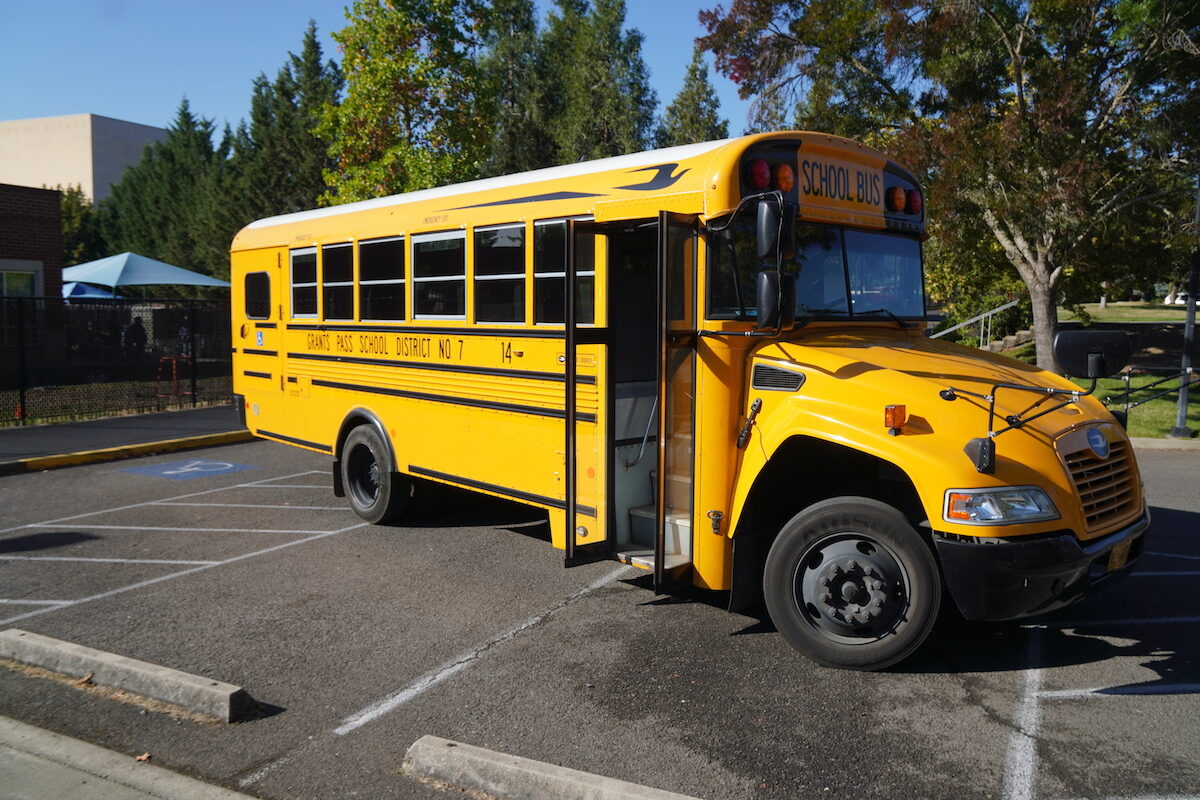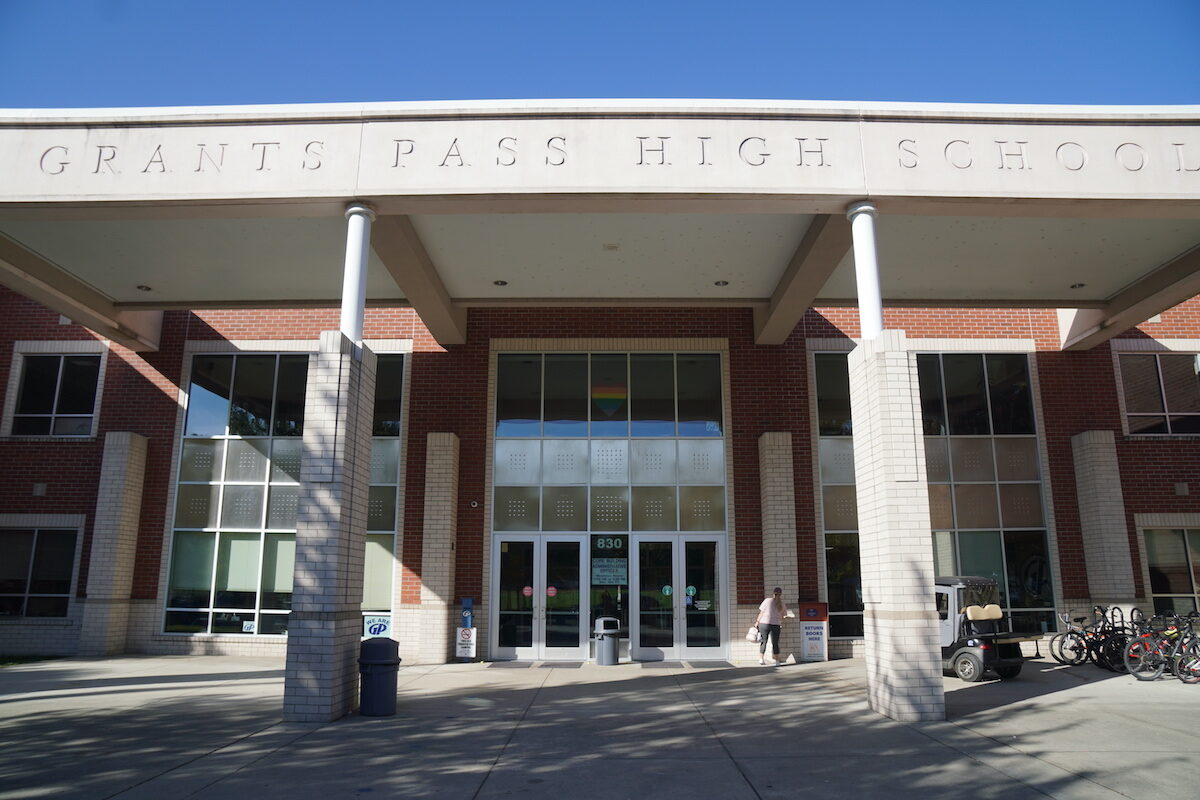School System Failing And Is No Longer There to Educate, Says Teacher
Distressed Patriotic Flag Unisex T-Shirt - Celebrate Comfort and Country $11.29 USD Get it here>>

America’s education system has failed, according to a teacher and charter school enthusiast. And now parents search for new schools, surveys show.
“The goal of the education system today is no longer to educate. It’s to do everything but that,” Dan Fisher told the Epoch Times.
Fisher teaches 10th grade at a high school whose name he declined to publicize. Before that, he taught as a professor. The classrooms he is in today let him see a system in collapse.
Tenth-graders can’t read, most students don’t want to participate, and teachers care more about woke indoctrination than addressing these issues, Fisher said.

But kids have plenty of energy to invest in their tech, he added.
“After school is fascinating,” he said. “They’re not playing. They’re not running. They’re just on their phones,” he said.
Like several other educational activists, Fisher said COVID-19 pandemic changes revealed the rotting condition of America’s schools.
“They assumed that schools were the way they were when they went through, and they had no idea how much things have changed, as far as curriculum and other things,” he said.
High graduation rates are fake, said Fisher. Schools regularly pass students with little regard to whether they meet standards, he added.
“We’re asked at the 10th-grade level, 11th-grade level, to help teach reading,” he said. “Isn’t that kind of what K-8 is for?”
In this environment, it’s no wonder that most parents are looking for new schools Fisher said. He’s supported by a new survey by National School Choice Week, a charitable program of the nonprofit National School Choice Awareness Foundation.
Peeved Parents
Nearly 54 percent of parents of more than 3,800 surveyed have considered a new school for their children in the past year, the study found.
The number of dissatisfied parents got higher the younger parents were, researchers found.
Among parents ages 18–29, about six in 10 considered moving schools in the past year.
Among parents aged 30 to 44, a little more than half considered moving schools. Among those aged 45 to 60, just under half considered a move. And about four out of 10 parents aged 60 and above considered moving schools.
The survey noted that African American, Hispanic, and Millennial parents were most likely to consider changing schools. These groups were also most likely to say there weren’t enough choices between schools.

Caucasian Americans were least likely to consider changing schools and most likely to say school systems provided enough choice, the survey noted.
Not all parents who considered a new school chose one or remained in the tension of making a choice, the study said. About 16 percent of all parents surveyed chose new schools, 11.3 percent considered doing so but didn’t, and 25.8 percent are considering one.
Many parents considered multiple options, the survey said. But the most often-cited options were nearby traditional public schools. The second, third, fourth, fifth, and sixth-most popular options were public schools outside parents’ districts, public charter schools, faith-based schools, homeschooling, and full-time online schooling.
The least-popular option was “microschooling” or “pod learning,” methods that teach a group of 10 or fewer kids.
Nearly 65 percent of parents said they wished they had more information on schooling options, the survey said.
Never Normal
For the past few years, parents have churned between schools, Shelby Doyle, vice president of public awareness at the National School Choice Awareness Foundation, told The Epoch Times.
With COVID-19 lockdowns over, this trend has continued.

“What surprised me about this year’s results is how that has been sustained as we’ve returned to a ‘sense of normalcy,’” she said.
Doyle said the high rates of consideration for changing schools might remain for two reasons. First, most families have multiple kids, so parents can contemplate changing schools for each kid. Secondly, parents feel more aware of the option to change schools.
“Having that barrier in their minds broken through of what it would look like to make a different choice, it makes it easier to choose again,” Doyle said.
The most significant future impact from the survey will likely come from non-white parents, she said. This group continues to make up a larger proportion of parents in general, and their choices will continue to change America’s school systems, she added.
However, it’s hard to know if this trend toward school choice among non-white families is new.
“We’ve only been doing our parent surveys for a couple of years. But for the last couple of years, this interest has been consistent from all of the different demographic groups,” Doyle said.
Doyle also said the National School Choice Awareness Foundation intentionally released the survey in January to accommodate increasingly early school application deadlines.
“As more choices exist, more enrollment deadlines are starting to happen over the course of the winter, or even the fall sometimes,” she said. “So if parents are interested in choosing, it is a really important opportunity to start that process.”
Falling Apart
Education’s disaster comes from two sources, Dan Fisher said—students feel apathetic and struggle with so many discipline issues that teachers can’t get them to learn.
“They only want to come to class and spend the class period talking to their friends or sleeping,” he said.
School systems also don’t cater to teachers’ needs, he added.
“The systems are geared around the districts and the supervisors,” he said. “The question, ‘What makes a teacher’s life easier?’ I don’t think ever gets asked.”

Fisher blamed education’s current state on national unions that don’t help teachers—and politicians who want to make learning ideological.
Parents should leave the public education system behind and join charter schools, he said.
“The public education system is irreparably broken. You’re not going to fix it. It’s too big,” he said.
However, Fisher added, most parents also don’t care about the problems with schools.
“Parents are so disengaged in the process. It’s really frightening,” he said. “They just don’t care.”
Everything Else
School choice can impact many factors in a family’s life.
Education impacts children’s futures.
According to research by the HighScope Educational Research Foundation, children who attend early childhood education are far more likely to succeed financially later in life.
Given that impact, parents often decide where to live based on the condition of local schools.
For instance, a survey by the National Association of Realtors found 53 percent of people with children under 18 said school quality was an important part of choosing where to live.

The demand for good schools also can be a major driver for property prices.
The National Bureau of Economic Research found that every dollar spent on public schools increases property values by $20.
Moving can also have an emotional impact on children. Even if moving to a better school can eventually bring good results, it will likely hurt emotionally in the present.
When kids move, it tends to hurt their mental and emotional functioning, according to a brief from the MacArthur Foundation. The more often children move, the more social, emotional, and behavioral problems they have, the study says.
Falling Behind
International rankings suggest parents may have good reasons for disappointment in the U.S. education system.
Compared to other countries, the U.S. ranks 32nd in student math skills, 14th in science, and 12th in reading among 41 countries surveyed by the Organisation for Economic Co-operation and Development (OECD).
These figures show a decline since the last OECD survey of these countries.

Today, 54 percent of American adults aged 16 to 74 lack “literary proficiency,” according to Gallup Polls.
If America isn’t as educated as the rest of the world, it will fall behind economically, data from the World Economic Forum (WEF) suggests.
The forum’s research states that if all children in a high-income country get the education they need, they can raise a nation’s GDP by 16 percent per year for the next 80 years.
“Governments should work with parent and teacher associations, as well as the private sector and civil society organizations, to find the best and most constructive ways to improve the quality of education,” the WEF’s website suggested.
The Epoch Times contacted the National Education Association but received no comment.




